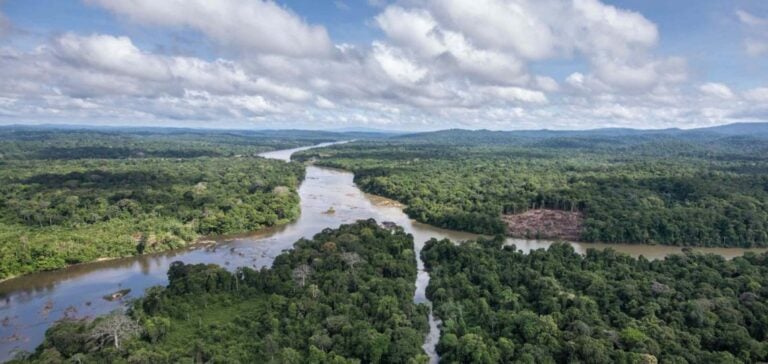Indigenous peoples in French Guiana have lodged a complaint with the UN against the construction of a solar power plant, arguing that it will have a harmful impact on their environment. The French Guiana Indigenous Nations Organization (ONAG), supported by the International Service for Human Rights (ISHR), is calling for the work to stop. The plant is located near the Kali’na village of Prospérité, where it threatens traditional practices. The inhabitants fear for their way of life, closely linked to hunting, fishing and gathering.
Specific demands
The Kali’na community is not opposed to the development of renewable energy, a growing sector in French Guiana, but is critical of the location of the CEOG power plant, and has been resisting its proximity for years. They point out that the site encroaches on land essential to their traditional activities. ONAG and ISHR urge France to reconsider the location of the project and consult more effectively with affected communities.
Progress despite interruptions
Work began in late 2022, but was suspended during the rainy season, illustrating the project’s technical and environmental challenges. With a large security force in place, the clearing of trees resumed, underlining the tensions on the site. The plant is designed to supply 10,000 homes with electricity, highlighting the region’s energy challenges. Meridiam, Société anonyme de la raffinerie des Antilles and Hydrogène de France are working together to finance this 170 million euro project.
Although the inhabitants of the village of Prospérité have received the support of the Ligue des droits de l’Homme, the project has the backing of local elected representatives, who see it as a solution to the frequent power cuts. This dynamic highlights the complexity of meeting energy needs while preserving the rights and lifestyles of indigenous populations. The consensus among elected representatives underlines a regional desire to move towards energy transition. However, the protest raises important questions about the environmental and social impact of renewable energy projects.






















